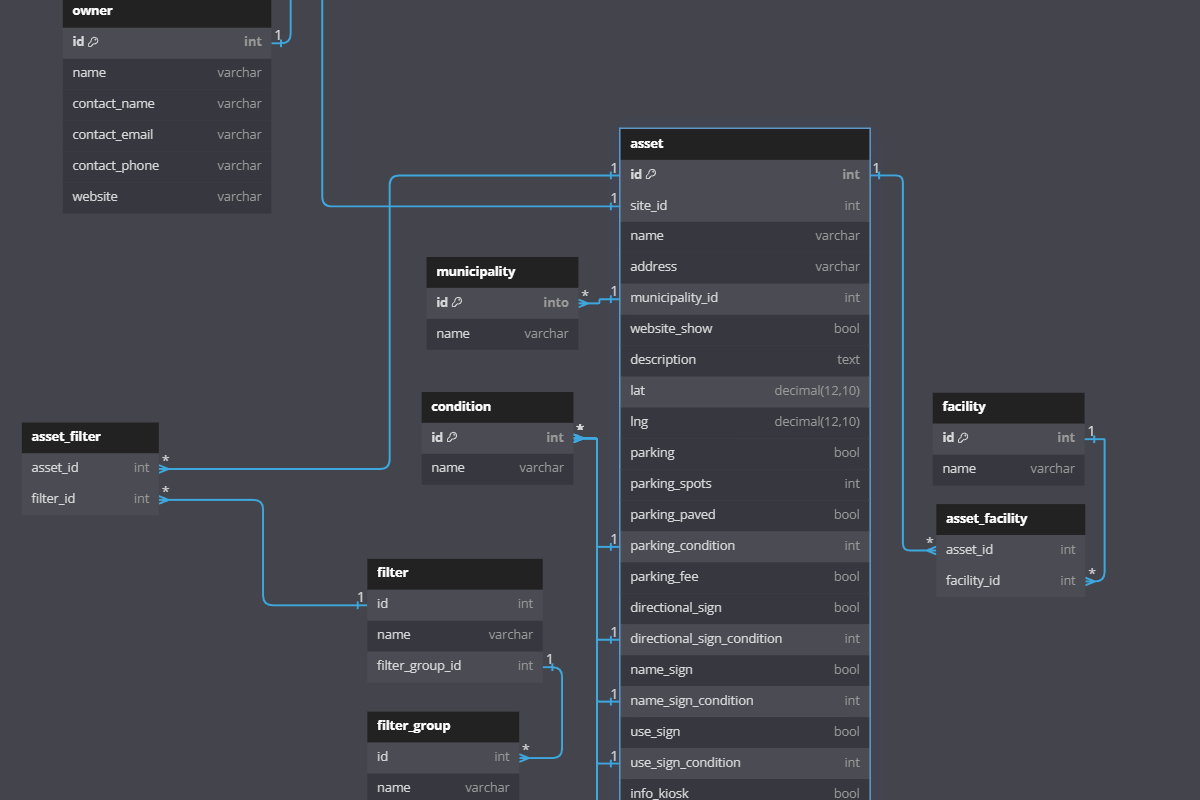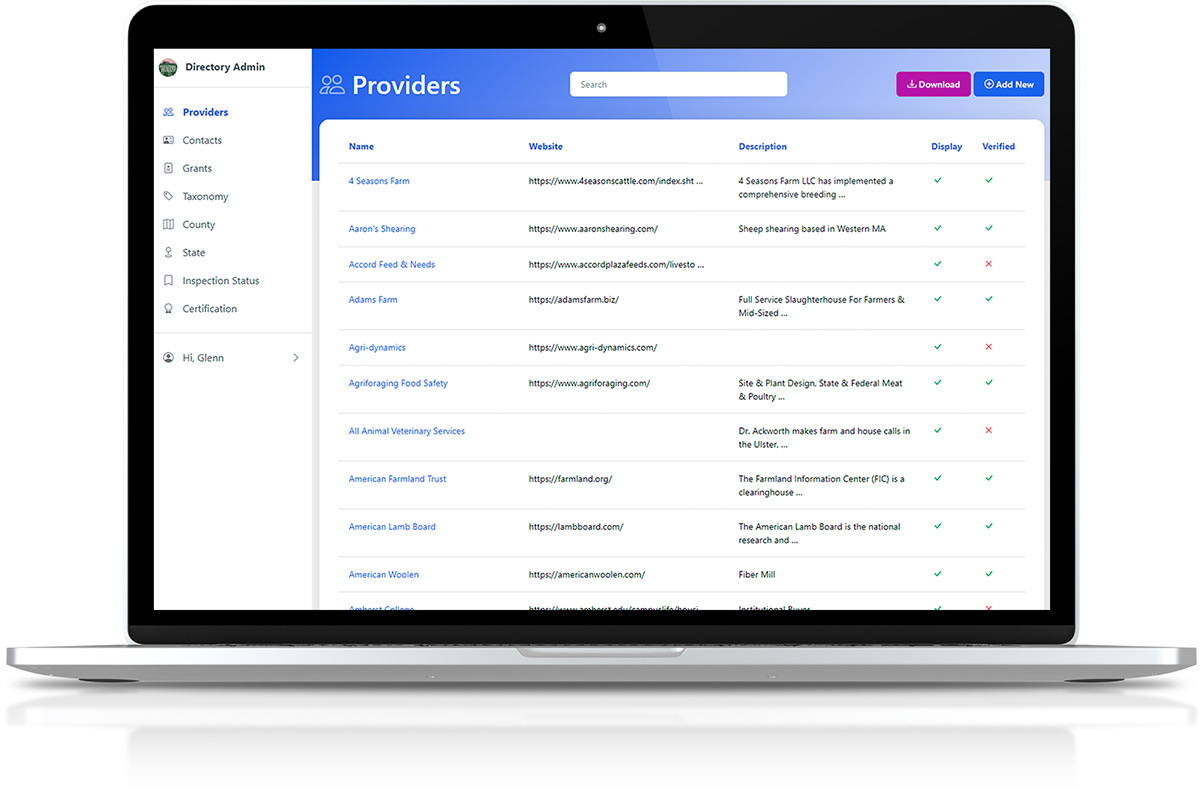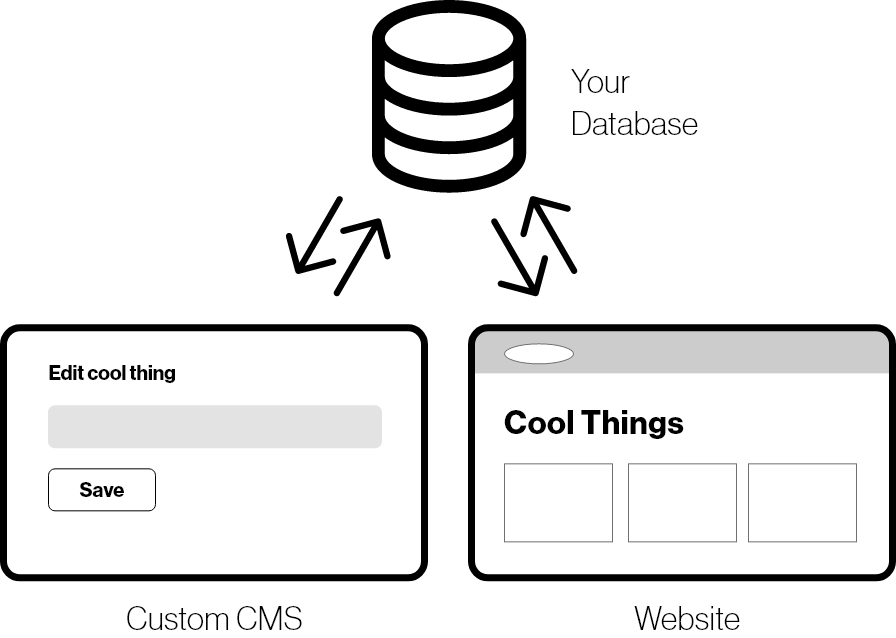
When building a web application that serves the public, the foundation often relies on strong database design and custom content management system (CMS) development. These elements are critical for ensuring data organization, usability, flexibility, and a user-friendly interface. Below, we explore the benefits of these key components and how they combine to create powerful web applications.

Typically, our clients are storing their data in an spreadsheet or Access database. Database design is the process of structuring and organizing that data into related tables. We optimize how it is stored, accessed, and managed. In a public-facing web application, effective database design is crucial.
A well-designed database ensures that information is stored in an organized manner, making it easy to retrieve and manage. For example, a public health portal can use a structured database to store, categorize, and serve data related to health services, providers, and locations, giving users quick access to relevant information.
When a database is properly designed and the data normalized, it reduces redundancy and ensures that updates or changes to the data are reflected across all relevant parts of the application. This is particularly important for public-facing applications where accuracy and real-time information are essential.
Relationships between tables allows data to be interconnected in ways that enhance its value and usability. By linking related information, such as customers to orders or products to categories, databases can eliminate redundancy, ensure data consistency, and simplify complex queries. These relationships enable more efficient data retrieval, enhance reporting capabilities, and improve overall data integrity, making the system both scalable and reliable. This structured approach benefits organizations by streamlining data management and unlocking valuable insights.
As the user base of a web application grows, so does the volume of data. A well-structured database can easily scale to handle more data without performance degradation. Public institutions, government websites, and non-profits often see growth in usage, and scaling efficiently is critical for their continued success.
A custom CMS allows the creators of a web application to tailor the management and presentation of content specifically for their users' needs. This is advantageous for several reasons:
Unlike off-the-shelf CMS platforms, a custom CMS can be built to match the specific requirements of the public audience. Whether it's a resource hub for a community, an e-learning platform, or a government service portal, a custom CMS ensures the content structure, workflow, and permissions fit perfectly with the application's objectives.
Custom CMS development offers the flexibility to add unique features, integrate third-party services, and change the application over time based on user feedback and needs. For public service applications, this means the ability to grow and adapt with evolving public needs.
A custom CMS can optimize content management workflows for different user roles—administrators, editors, and contributors—streamlining how content is published, approved, and updated. This is particularly helpful for organizations or governments that need to distribute accurate and timely information across various departments or regions.
Since custom CMS platforms are built specifically for the intended use case, they tend to perform better than generic platforms with unnecessary features that can slow down the site. This is especially beneficial for public-facing applications with a high volume of visitors.
When database design and custom CMS development are combined, they form the backbone of a powerful, user-centric web application.
For example, a city government could build a web portal where residents can access public resources, request services, and stay updated on community events. A well-structured database would ensure that user data, service requests, and updates are efficiently managed, while a custom CMS would allow city staff to easily update content and information. The result is a robust platform that simplifies public interaction with local government services, enhances user experience, and ensures accurate, timely information is accessible to all.
The combination of strong database design and custom CMS development provides a scalable, secure, and adaptable solution for creating web applications that serve the public. These applications offer streamlined management of both data and content, improving the overall quality and accessibility of public services and information.

You need different ways of communicating your brand to your customers. Here is a list of our capabilities that help our clients achieve their goals.
Your business, your market, the way you work, the people you work with. Let’s collaborate on your project and come up with the best approach for you.